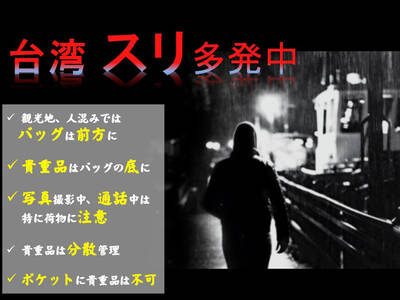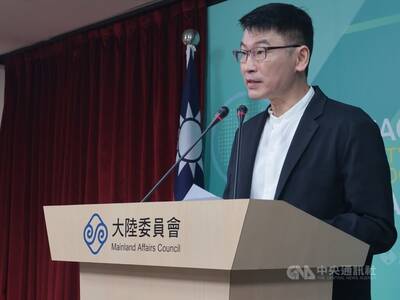Taipei Mayor Ko Wen-je (柯文哲) yesterday said that the city is recruiting volunteers for next year’s Universiade to encourage public participation, amid criticism that the city had undermined the jobs of professional interpreters by turning to volunteers who are to receive a subsidy of NT$220 for every eight hours of service.
Labor rights advocacy group 95 Youth Labor Union on Wednesday decried the proposed subsidy for volunteers, who are set to provide a range of translation services, including interpreting for international delegations, serving at emcees for a number of sports categories, assisting referees, taking meeting minutes and coordinating with International University Sports Federation (FISU) officials.
Saying that the basic rate for interpreters is NT$8,000 per eight hours of work and that the jobs to which volunteer interpreters will be assigned need technical expertise, the group called on the Taipei Department of Labor to investigate whether the Taipei Universiade Organizing Committee is attempting to exploit workers in the name of recruiting volunteers.
The group added that the committee’s outsourcing of volunteer recruitment work to Chun Hsin Co, which is the authorized provider of the Test of English for International Communication (TOEIC) in Taiwan, could be aimed at profiting the firm, as applicants are required to have a TOEIC score of at least 550.
Responding to reporters’ queries at an education-related event, Ko said that the subsidy was set after assessing the city’s financial situation.
He said that the subsidy is not very generous because work at the Universiade relies on proactive civic participation rather than contractual relationships, which he said are prone to attract workers that are “too businesslike” and might not produce results that are as satisfying as recruiting volunteers.
He compared the situation to volunteers at Buddhist Compassionate Relief Tzu Chi Foundation and Fo Guang Shan Monastery, who are usually regular donors to the two groups, saying: “They pay money to work there, and they are happy.”
Committee spokesman Yang Ching-tang (楊景棠) said that the subsidy rule was set in accordance with the Volunteer Service Act (志願服務法), even though the act does not mandate establishments requesting voluntary work to pay volunteers.
It follows the system used during the 2009 Summer Deaflympics hosted by Taipei, he said.
The TOEIC is not the only credential the committee recognizes when vetting volunteers, as those who have passed the intermediate level General English Proficiency Test can also apply, he said.
The committee has recruited about 16,000 of the 18,000 volunteers it needs — including about 1,500 who passed language proficiency tests who would be assigned work as interpreters, he said.
The committee said that emcees’ script would be provided by FISU, adding that volunteers who will act as emcees will undergo proper training.
Tommy Jiang (江健新), a freelance translator and interpreter, said that he does not think it is necessary to hire professional interpreters to take care of the delegates, as the job only requires basic conversational skills.
However, he said the bar set by the committee on volunteers’ English proficiency is comparable to the English level of an average Taiwanese high school student, which is too low and could spell trouble for translation work.

The Japan-Taiwan Exchange Association has cautioned Japanese travelers to be vigilant against pickpockets at several popular tourist spots in Taiwan, including Taipei’s night markets, the Yongkang Street area, Zhongshan MRT Station, and Jiufen (九份) in New Taipei City. The advisory, titled “Recent Development of Concerns,” was posted on the association’s Web site under its safety and emergency report section. It urges travelers to keep backpacks fully zipped and carried in front, with valuables placed at the bottom of the bag. Visitors are advised to be especially mindful of their belongings when taking photos or speaking on the phone, avoid storing wallets and

ENDORSING TAIWAN: Honduran presidential candidate Nasry Afura said that Honduras was ‘100 times better off’ when it was allied with Taipei The Ministry of Foreign Affairs yesterday said it would explore the possibility of restoring diplomatic relations with Honduras based on the principle of maintaining national interests and dignity. The ministry made the remarks in response to reporters’ questions regarding an article titled: “Will Taiwan Regain a Diplomatic Ally?” published in The Diplomat on Saturday. The article said Honduras’ presidential election in November could offer Taiwan the chance to regain an ally, as multiple candidates have promoted re-establishing diplomatic relations with Taiwan. Honduras severed diplomatic ties with Taiwan in March 2023 in favor of Beijing, but since switching its diplomatic recognition,

Scoot announced yesterday that starting in October, it would increase flights between Taipei and Japan’s Narita airport and Hokkaido, and between Singapore and Taipei. The low-cost airline, a subsidiary of Singapore Airlines, also said it would launch flights to Chiang Rai in Thailand, Okinawa and Tokyo’s Haneda airport between December and March next year. Flights between Singapore and Chiang Rai would begin on Jan. 1, with five flights per week operated by an Embraer E190-E2 aircraft, Scoot said. Flights between Singapore and Okinawa would begin on Dec. 15, with three flights per week operated by Airbus A320 aircraft, the airline said. Services between Singapore

The Mainland Affairs Council (MAC) yesterday announced a ban on all current and former government officials from traveling to China to attend a military parade on Sept. 3, which Beijing is to hold to mark the 80th anniversary of the end of the Second Sino-Japanese War. "This year marks the 80th anniversary of the end of World War II and the Republic of China’s victory in the War of Resistance [Against Japan]," MAC Deputy Minister and spokesperson Liang Wen-chieh (梁文傑) told a regular news briefing in Taipei. To prevent Beijing from using the Sept. 3 military parade and related events for "united